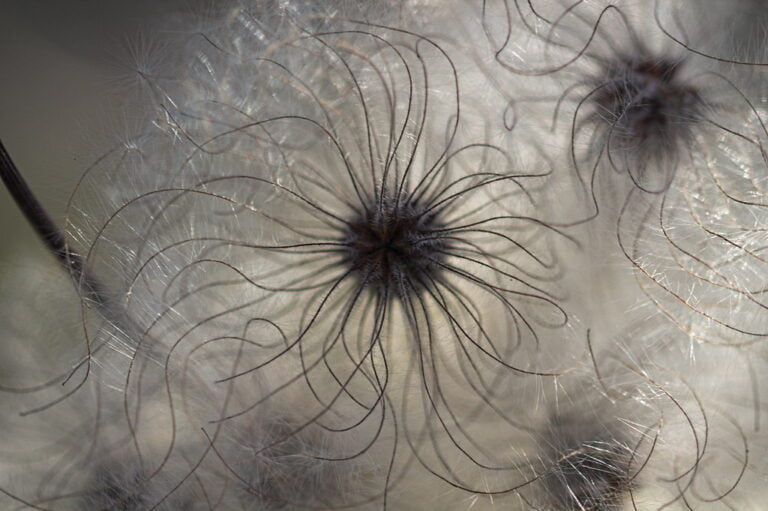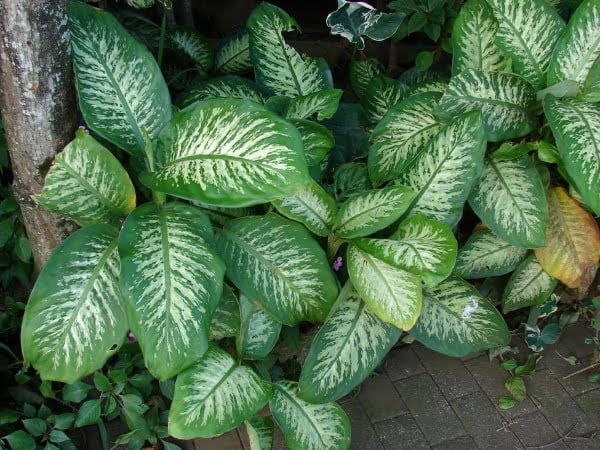Effective Methods for Eliminating Whiteflies From Your Plants
When dealing with whitefly infestations, I find that using neem oil improves their growth stages effectively. Insecticidal soap also suffocates whiteflies. Reflective mulch confuses their landing cues. A garlic spray with a strong odor repels them easily. A mix of water and dish soap disrupts their feeding habits. Incorporating a balanced nutrient profile and good drainage boosts plant vigor against whiteflies. Organic matter like compost promotes beneficial microbial activity in the soil. Additionally, introducing beneficial insects like ladybugs and lacewings aids in controlling whiteflies naturally. Specialized products and tailored management strategies further augment your battle against these persistent pests.
Natural Remedies for Whitefly Control
Wondering how to naturally tackle whiteflies infesting your plants? When addressing these pesky insects, there are several effective natural remedies at your disposal. Neem oil, recognized for its ability to disrupt whitefly growth stages, acts as a potent natural pesticide. This organic solution not only targets whiteflies but also helps in deterring other common garden pests.
Insecticidal soap is another powerful weapon in the fight against whiteflies. This soap suffocates whiteflies on contact without causing harm to beneficial insects, making it a safe and eco-friendly choice for pest control. Reflective mulch offers a clever solution by confusing the whiteflies’ visual cues for landing, effectively reducing their presence in your garden.
For those looking to create their own homemade remedy, a garlic spray can work wonders. Whiteflies are repelled by the strong odor and taste of garlic, keeping them at bay from your plants. Additionally, a simple mixture of water and dish soap can disrupt whitefly feeding by altering the leaf surface tension, making it harder for them to thrive.
Improving Soil Health Against Whiteflies
Improving soil health is crucial to strengthening plants against whitefly infestations. Ensuring a balanced nutrient profile and good drainage can boost plant vigor, making them less appealing to these pests. Incorporating organic matter like compost can promote beneficial microbial activity in the soil, creating an environment that supports plant health and resilience.
Soil Nutrient Balance
Improving soil nutrient balance is crucial for strengthening plant health and resilience against whitefly infestations. Maintaining balanced soil pH levels and incorporating organic matter like compost and natural fertilizers can help deter whiteflies. These practices create an environment where plants can thrive, making them more resistant to whitefly damage. Soil amendments such as vermicompost further boost soil health, promoting plant vigor and discouraging whiteflies naturally. By ensuring that the soil is rich in essential nutrients and beneficial organic materials, plants are better equipped to fend off whitefly infestations. A healthy soil ecosystem not only supports plant growth but also acts as a natural defense mechanism against pests like whiteflies.
Beneficial Microorganisms
Enhancing plant health and resilience against whitefly infestations can be achieved through utilizing the power of beneficial microorganisms in the soil. Soil microbes such as mycorrhizal fungi and beneficial bacteria play vital roles in improving nutrient uptake and strengthening plant immune systems. By cultivating a healthy soil ecosystem, you create an unfriendly environment for whiteflies, effectively deterring infestations. Introducing beneficial microorganisms through organic amendments or compost can greatly impact the soil’s microbial diversity, supporting vigorous plant growth and reducing susceptibility to whitefly damage. Embracing these natural allies not only boosts plant health but also contributes to sustainable pest management practices, promoting a harmonious balance within the soil ecosystem.
Caution With Neem Oil and Soap
When using neem oil and insecticidal soap to fight whiteflies, it’s important to be mindful of their potential effects on beneficial insects like ladybugs and bees. I suggest applying neem oil and soap sprays diligently, ensuring thorough coverage on both the upper and undersides of leaves for maximum effectiveness against whiteflies. Remember, proper application techniques can help safeguard your plants while efficiently managing whitefly infestations.
Neem Oil Warning
Using neem oil on your plants requires caution, especially when combining it with soap to combat whiteflies effectively. While neem oil is beneficial for pest control, it can harm beneficial insects like bees and ladybugs if not used carefully. Mixing neem oil with soap can improve its effectiveness, but it should be applied in the evening to prevent leaf burn in direct sunlight. To avoid negative impacts on plant health, use neem oil sparingly to prevent buildup in the soil. Always refer to the instructions on neem oil labels for proper dilution and application techniques. By being mindful of these factors, you can effectively utilize neem oil while safeguarding beneficial insects and plant well-being.
Soap Application Tips
To improve the effectiveness of combating whiteflies on your plants, a strategic approach to applying soap alongside neem oil is essential. Dilute neem oil properly to avoid plant damage, and apply it in the evening to prevent leaf burn. Soap sprays disrupt whitefly membranes, causing dehydration and death. However, avoid spraying during hot sunny periods to prevent plant scorch. Before full application, test soap solutions on a small area of the plant to check for adverse reactions. Rotate between neem oil and soap treatments to prevent whiteflies from developing resistance to a single solution. By following these tips, you can effectively manage whitefly infestations while ensuring the health of your plants.
Introducing Beneficial Insects
Beneficial insects play an important role in naturally controlling whitefly populations on plants. Ladybugs are efficient predators of whiteflies, devouring up to 50 of them daily. These colorful beetles are a gardener’s best ally in combating whitefly infestations. Lacewings are another beneficial insect that targets all stages of whiteflies, from eggs to adults, effectively keeping their numbers in check. Their voracious appetite for whiteflies helps maintain a healthy balance in the garden ecosystem.
Parasitic wasps offer a more subtle approach to whitefly control by laying eggs inside whitefly nymphs. Once the eggs hatch, the wasp larvae feed on the whiteflies from within, ultimately leading to their demise. This natural form of pest control is both fascinating and effective in reducing whitefly populations. Spiders, often overlooked in the domain of pest control, also contribute to managing whiteflies in the garden. Their web-building prowess and predatory nature make them valuable allies in the fight against these tiny pests.
Creating a diverse ecosystem that supports a variety of beneficial insects is key to long-term whitefly management. By encouraging these natural predators to thrive in your garden, you can reduce the need for chemical interventions and maintain a healthy plant environment.
Specialized Pest Control Products
When selecting pest control products for whiteflies, contemplate specialized options such as systemic insecticides like imidacloprid. These products are tailored to target whiteflies effectively while minimizing harm to beneficial insects in your garden. Here are some key specialized pest control products to ponder:
- Systemic Insecticides (e.g., Imidacloprid): These insecticides can be applied to the soil or foliage, allowing the plant to absorb the product and target pests systemically.
- Insecticidal Soaps and Oils: Specifically formulated to combat whiteflies, these products are safe for beneficial insects and can be an environmentally friendly option for control.
- Neonicotinoids: While effective for whitefly control, these insecticides should be used carefully to avoid harming pollinators and other non-target organisms in the ecosystem.
- Pyrethroid Insecticides: Another choice for whitefly control, these broad-spectrum insecticides may impact beneficial insects and natural predators in the garden, so their use should be contemplated cautiously.
It’s essential to consult with a professional pest control service to determine the most suitable specialized product for your specific whitefly infestation and plant type. By choosing the right product and using it correctly, you can effectively manage whiteflies while safeguarding the overall health of your garden ecosystem.
Tailored Management Strategies
In managing whiteflies effectively, it is important to implement a tailored combination of cultural, biological, and mechanical control methods specific to the infestation at hand. Understanding the host plants that attract whiteflies is key in disrupting their lifecycle. By focusing interventions on these plants, you can effectively manage the whitefly population. Incorporating biological control methods such as introducing natural predators like ladybugs, lacewings, and parasitic wasps can be a sustainable approach to reduce whitefly numbers in your garden. These predators help keep whitefly populations in check without the need for harmful chemicals.
Regular monitoring and inspection of plants are crucial for early detection of whiteflies. By spotting them early, you can intervene swiftly and prevent the infestation from spreading. Integrated pest management techniques, which combine reflective mulches, traps, and targeted insecticidal sprays, offer a thorough strategy for managing whiteflies while safeguarding beneficial insects in your garden. Reflective mulches can disorient whiteflies, reducing their attraction to plants, while traps and sprays can help control existing populations.






